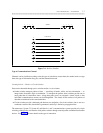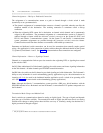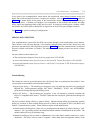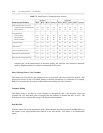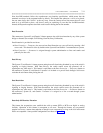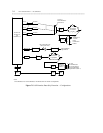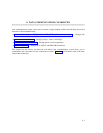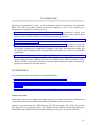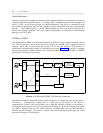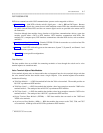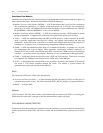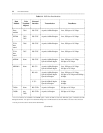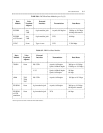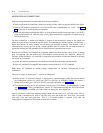DTE CONNECTIONS
_ ______________________________________________________________________________________
_ ______________________________________________________________________________________
_ ______________________________________________________________________________________
Through your communications system, you can communicate with both asynchronous and synchronous
DTEs. The DTEs may include terminals and personal computers, as well as host computer ports.
Designing these connections is a multi-step process:
• First, you must determine whether the DTEs are compatible. Asynchronous terminals must
communicate with asynchronous hosts, unless protocol converters are inserted in the communications
stream, or special terminal emulators or data communications packages are used.
• Second, you must be aware of the possibilities in data communication equipment (DCEs), like modems
and data modules, you can install.
• Third, you must decide which DCEs are appropriate for your installation. The DCE you choose will
depend on the communications system ports you use, the communications characteristics of the DTEs
(for example, asynchronous vs synchronous, full duplex vs half duplex, data speed, and so forth), and
the desk-top profile (standalone DCE, intergrated DCE/voice terminal) you want for your DTE/DCE
combination.
• Last, you must identify whether the communicating DTEs require modem pooling in the connection.
To communicate with an off-premises DTE, modem pooling may be required to convert signals
between digital and analog. Similarly, DTEs that are communicating in different transmission modes
(that is, one DTE is using analog transmission, the other digital transmission) require modem pooling,
regardless of whether they are on the same site.
DTE COMPATIBILITY
You can solve the connectivity problems of incompatible DTEs by:
• Installing protocols converters between the originating and destination DTE.
• Running a terminal emulation application, provided as a standalone application or integrated into a data
communications package, on the personal computers and/or hosts that you want to communicate with
each other.
• Installing the PC/PBX or PC/ISDN Platform in your IBM XT/AT compatible personal computer.
Protocol Converters
Many vendors offer protocol converters that convert messages, for example, between the asynchronous and
synchronous formats, between ASCII code and IBM’s SNA/SDLC protocols, and so forth.
Currently, for protocol conversion, AT&T offers only the 3270C data module. The 3270C, which converts
DCP protocol to coax-A protocol, allows a PC equipped with the PC/PBX 3270 emulation package to
communicate with an IBM 3270 cluster controller through the switch over a twisted pair connection.
8-3



